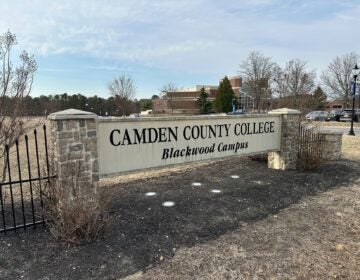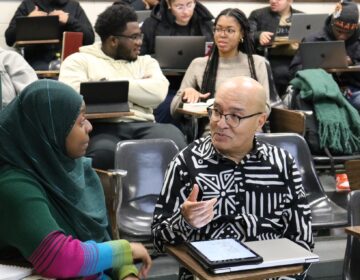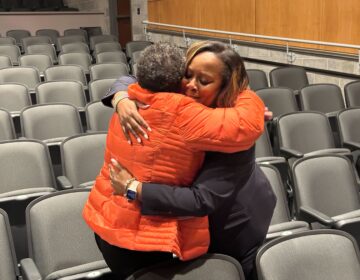New Jersey is upgrading and expanding vo-tech high schools
In 2018, New Jersey voters approved a bond to pay for renovations and additions at vo-tech schools across the state.
From Camden and Cherry Hill to Trenton and the Jersey Shore, what about life in New Jersey do you want WHYY News to cover? Let us know.
The Burlington County Institute of Technology, or BCIT, in Medford recently unveiled its renovated welding and heating, ventilation and cooling system shops, and a new video game design lab.
About 17 miles down the road, the Camden County Technical School’s, or CCTS, Pennsauken Campus expanded its culinary arts program.
These are just two of the many projects across the state that have benefitted from a 2018 bond measure that appropriated $350 million to expand county vocational schools and their programs.
Jackie Burke, executive director of the New Jersey Council of County Vocational-Technical Schools, which represents vocational-technical school districts in the state, said officials across the state gathered input on how to spend the money.
“They talked to employers, they talked to students and parents, they talked to everyone to see what the landscape is,” she said.
Major expansions take place at BCIT and CCTS
BCIT’s two campuses had their first major improvements in two decades.
In February, officials cut the ribbon on the $8 million major expansion of its welding and HVAC shops. The welding shops include a renovated classroom, storage area and four additional welding booths. The HVAC area was expanded to include a classroom, shop area, supply and tool storage and dedicated brazing area.
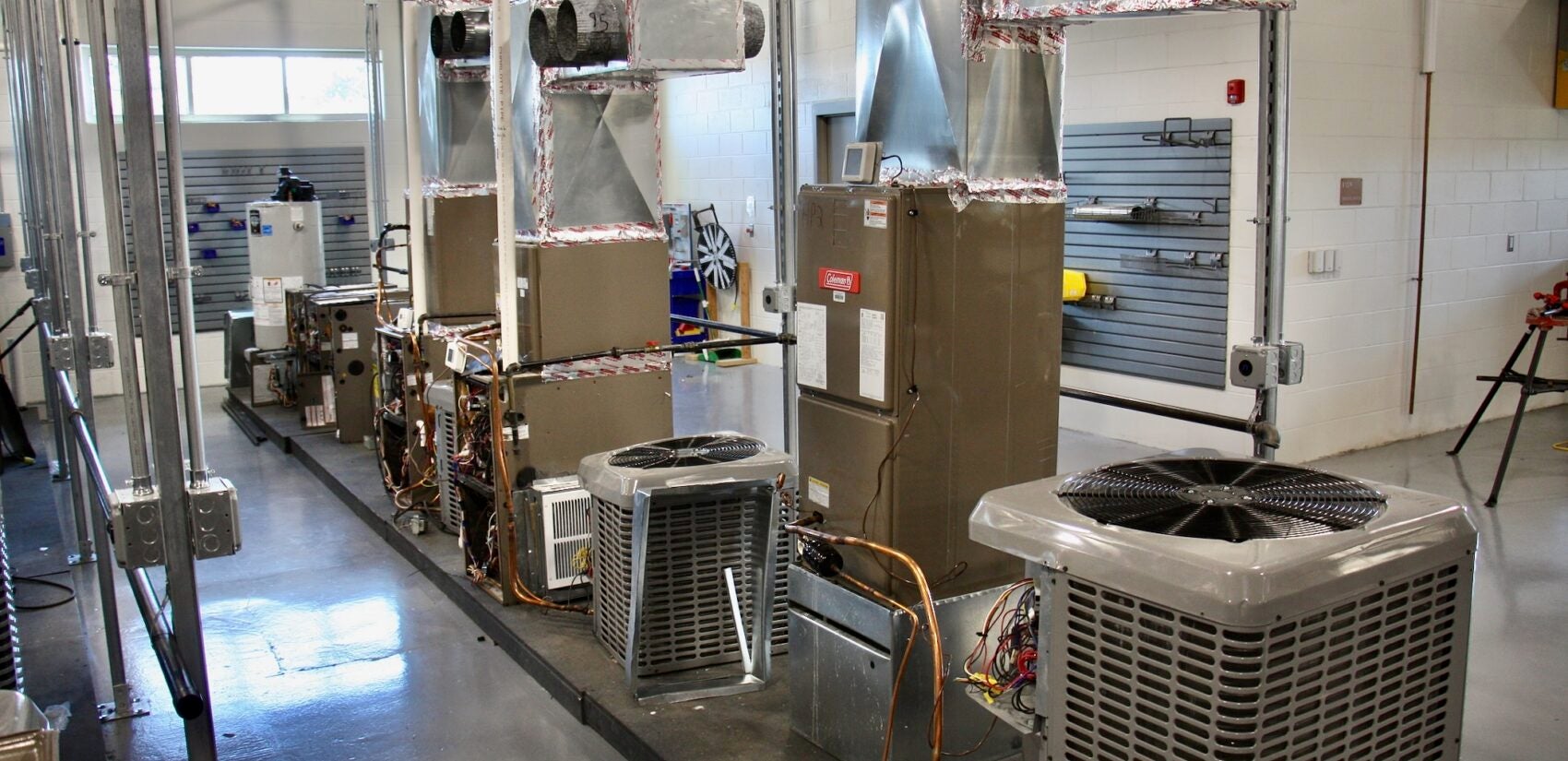
Improvements also include a video game design lab, which will have a gaming room for the school’s esports team.
Earlier that month, at BCIT’s campus in Westampton, officials surveyed the progress of a 39,000-square-foot expansion and renovation. The new addition will house a mock warehouse for logistics training and a large diesel engine garage.
Work is scheduled to be complete in time for the fall semester along with other construction projects taking place at schools in Bergen, Hudson, Hunterdon, Morris and Somerset counties.
At the Pennsauken campus of CCTS, the culinary arts program opened a nearly 21,000-square-foot, two-floor addition that will be exclusively for baking and pastry arts. The expansion includes a culinary career lab on each floor, classrooms, student changing areas and a dining hall that can double as a banquet room when needed.
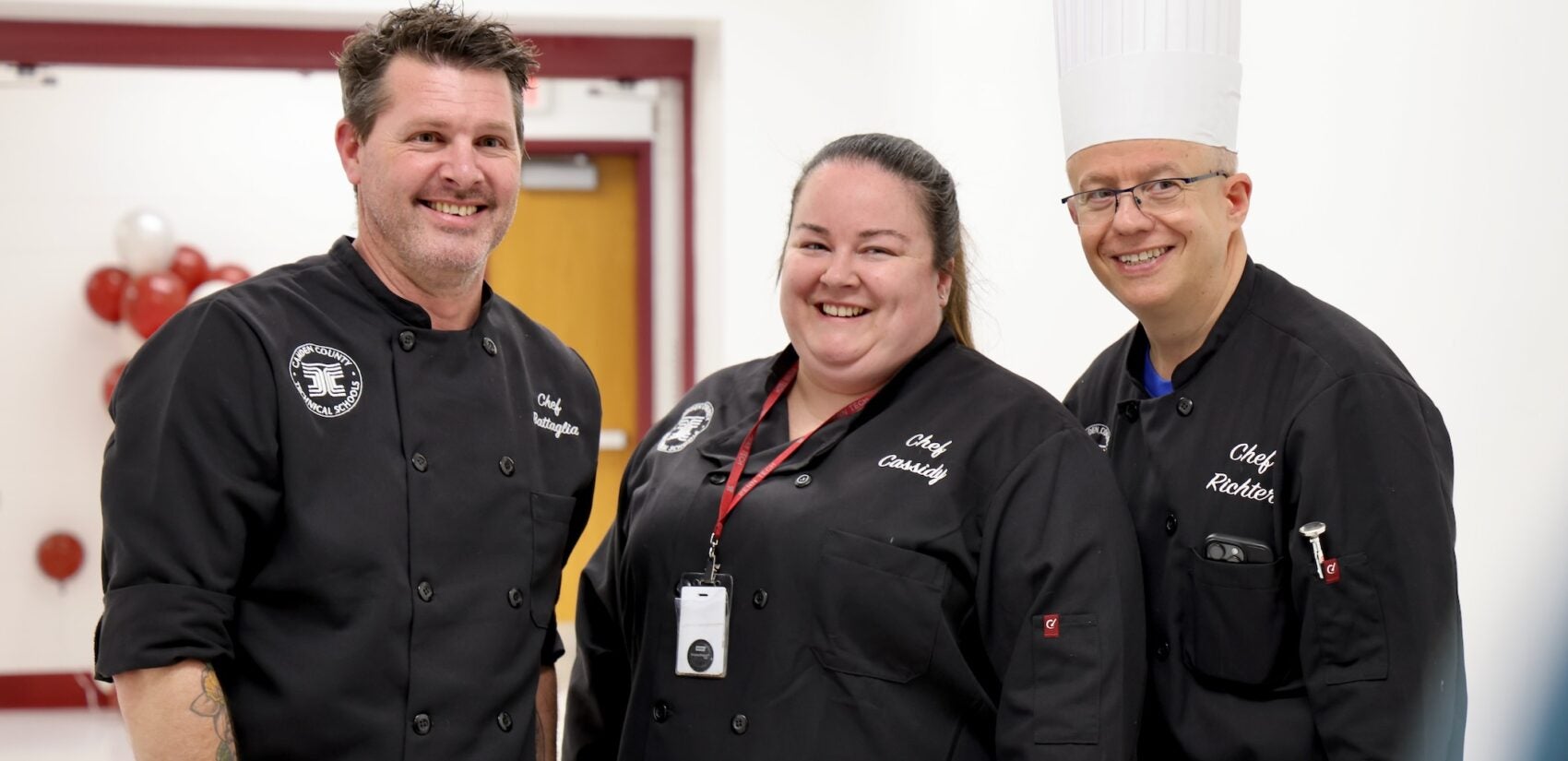
Cape May County Technical School got a student-run cafe and a renovated conference center with a seven-room hotel for hospitality and tourism students to operate. The Passaic County Vocational School District opened a biotechnology center, which includes New Jersey’s first DNA learning center.
New Jersey’s Vo-tech programs expands as more students apply
While many colleges and universities are seeing fewer students register for classes because of the high tuition costs, trade programs are booming, according to the National Student Clearinghouse, a nonprofit that verifies student enrollment in higher education. The New Jersey Council of County Vocational-Technical Schools said for each available seat, there are 2.4 applicants.
At CCTS, enrollment has increased since Superintendent Wanda Pichardo joined the district seven years ago, as have applications for the limited number of spots each year. Total enrollment between their Pennsauken and Gloucester Township. campuses are around 2,200, with about 650 open seats each year for new students.
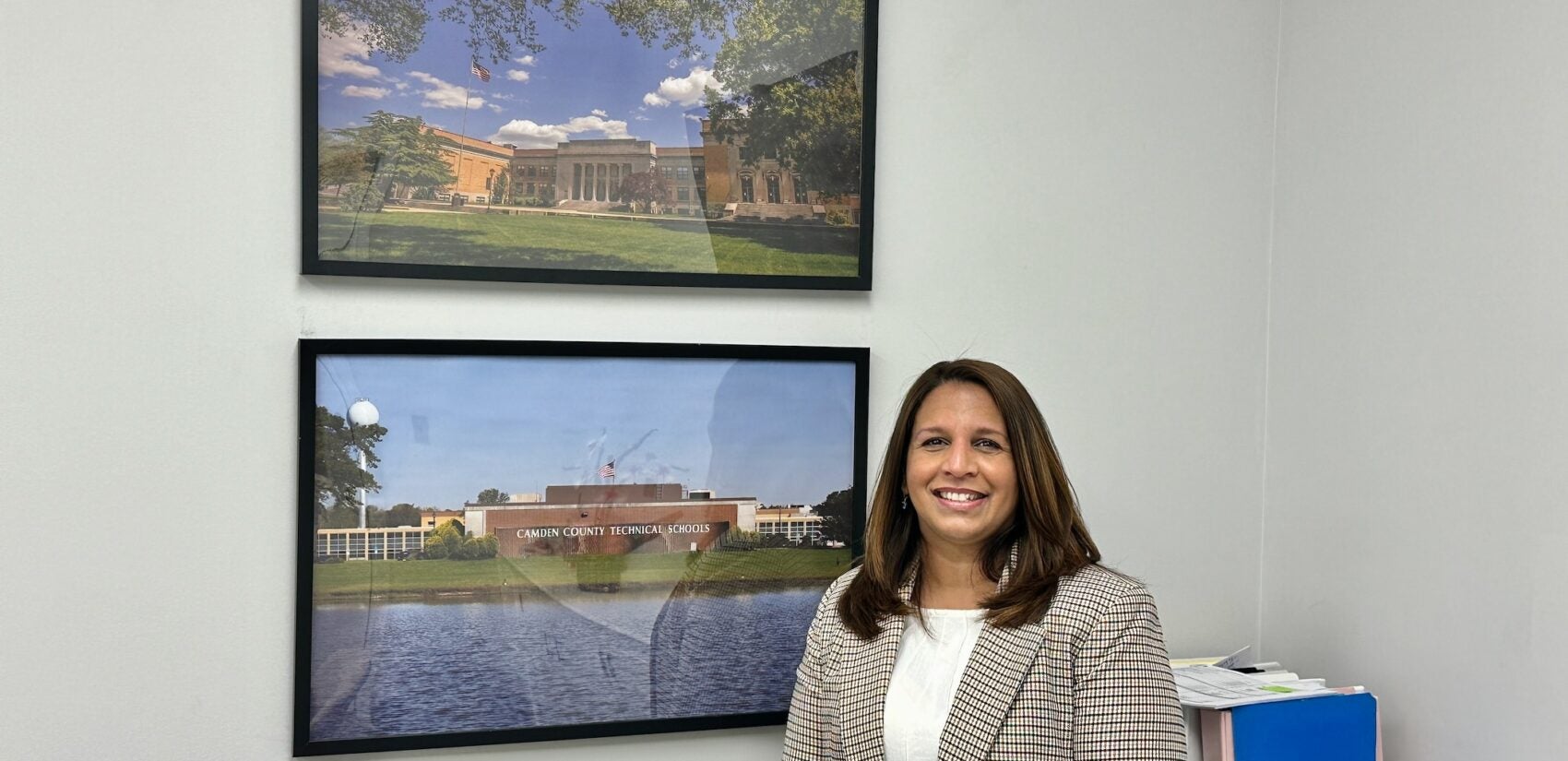
The situation is similar at BCIT. This year, the school received more than 1,200 applications for the 650 available seats. There are about 2,250 students enrolled between their east campus in Medford and their west campus in Westhampton.
“This year, we have the highest enrollment ever of students that want to come to BCIT,” said Ashanti Holley, the school district’s superintendent.
Mariah Howe, a senior majoring in welding technology at BCIT-Medford, said when she applied, she had to submit her transcripts, attendance and behavioral records and clear an entrance exam.
What does the path from vo-tech school to the workforce look like?
The talent that is cultivated at vo-tech schools is attractive to business, according to Angela D. Ford, vice president of government affairs with the New Jersey Business and Industry Association. She said vo-tech schools provide an opportunity to employers to “influence and mentor prospective employees.”
“Consistently, we’ve received positive remarks and satisfactory responses from employers that say that when they have students coming from vo-tech, those students are perhaps the most desired,” she said. “They’re the most adjusted to work, and I think that leads to successful careers for those individuals and successful employment.”
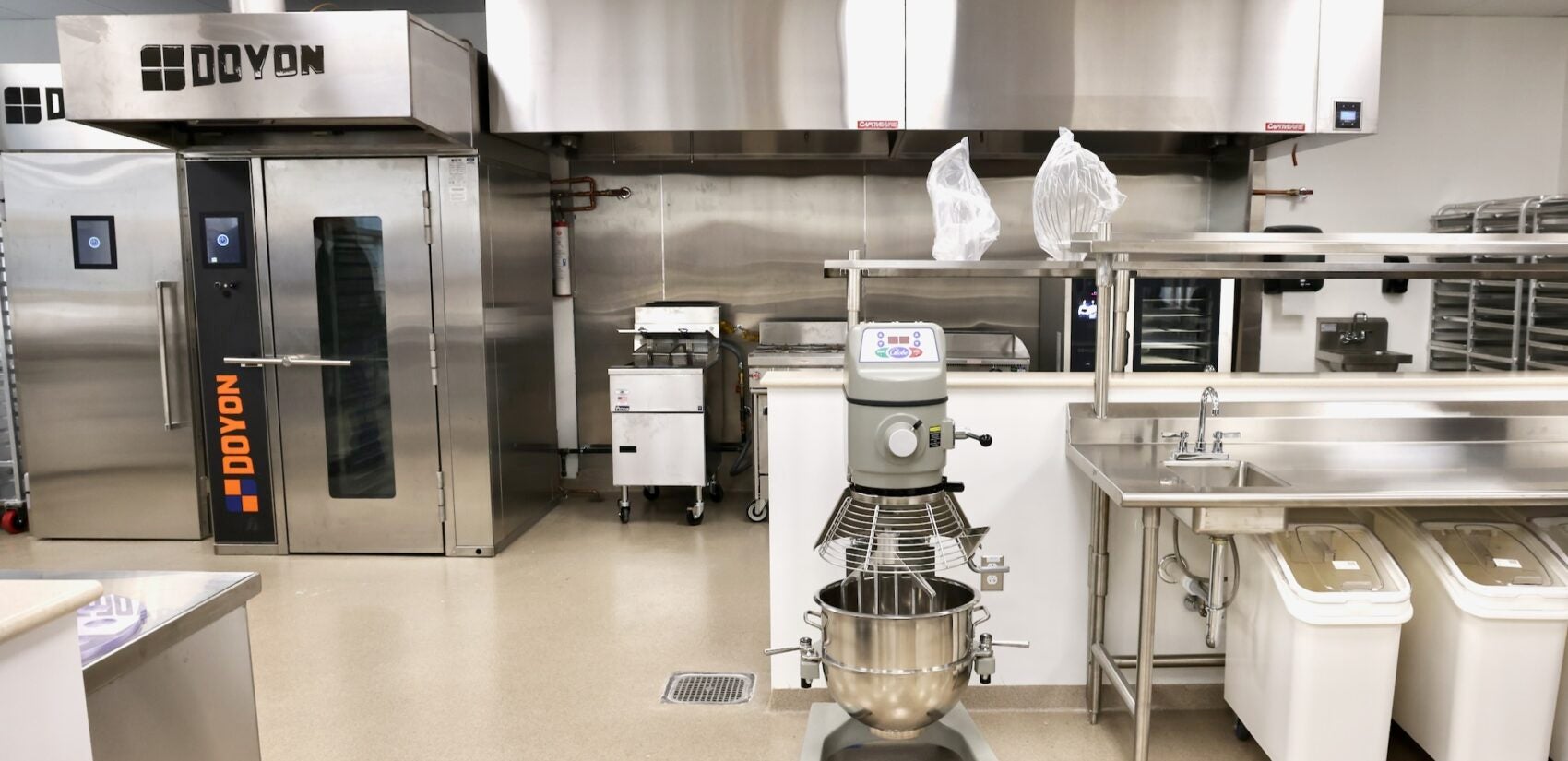
Ford said students have an early interaction with the workforce and that allows for a smoother transition to life after graduation. That was the case for Russell Carfagno of York, Pennsylvania, who graduated from what was then-Camden County Vocational and Technical School in 1981.
He said attending the school “without question” changed his professional trajectory.
“There’s so much benefit for people to just have someone believe in them and show some forward progression where you’ve been successful,” said Carfagno, who graduated at the top of his class in the air conditioning and refrigeration class. Prior to that, he studied electronics at the school.
He joined the Navy after working two years in the heating, ventilating and air conditioning field to get more experience in electronics. He would serve six years as a sonar electronics technician onboard a ballistic missile submarine. Once his service ended, he joined Honerywell and Johnson Controls.
Carfagno eventually went back to school, earning degrees from Thomas Edison State, DeVry and Eastern universities. He now teaches leadership for the University of Phoenix. He admits to not realizing that he would be a lifelong learner.
“It’s hard for me to even watch a sitcom or I’m always watching something that I feel like I’m learning,” he said. “I’m always trying to look at some opportunity to try and gain more information.”
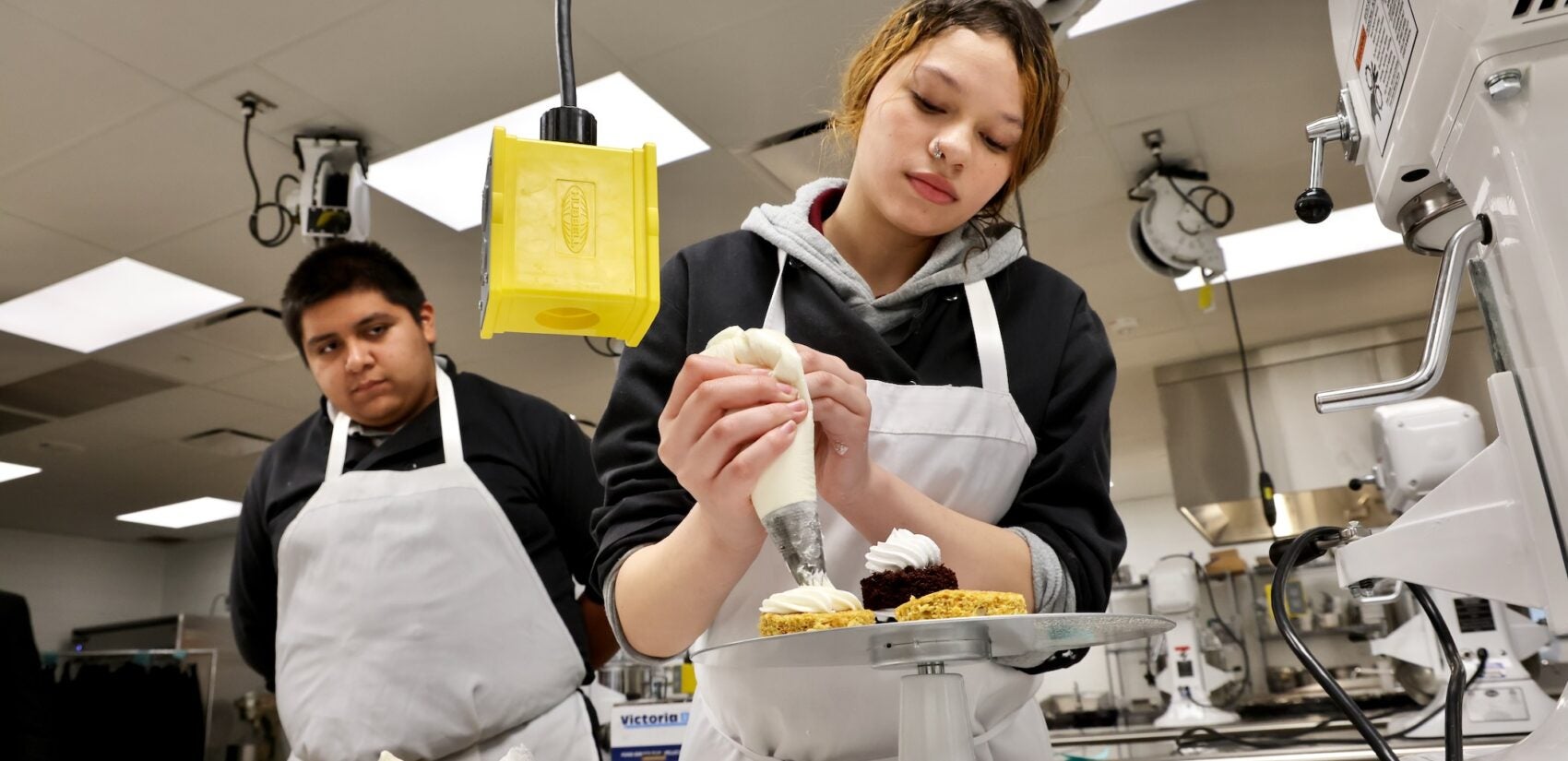
Mariah Howe, who currently works for a company in Mount Holly in the morning as part of BCIT’s School to Work program, said she looked into college to earn certifications, but decided that gathering work experience would be more beneficial.
“I can actually tell people how to fix things, instead of just kind of knowing the book work and just being able to be like, ‘This is wrong.’ But I can’t explain that to you because I had never actually done it,” she said.
For now, Mariah hopes to continue working for her current company after she graduates.
“They’re a pretty good company,” she said.

Get daily updates from WHYY News!
WHYY is your source for fact-based, in-depth journalism and information. As a nonprofit organization, we rely on financial support from readers like you. Please give today.




